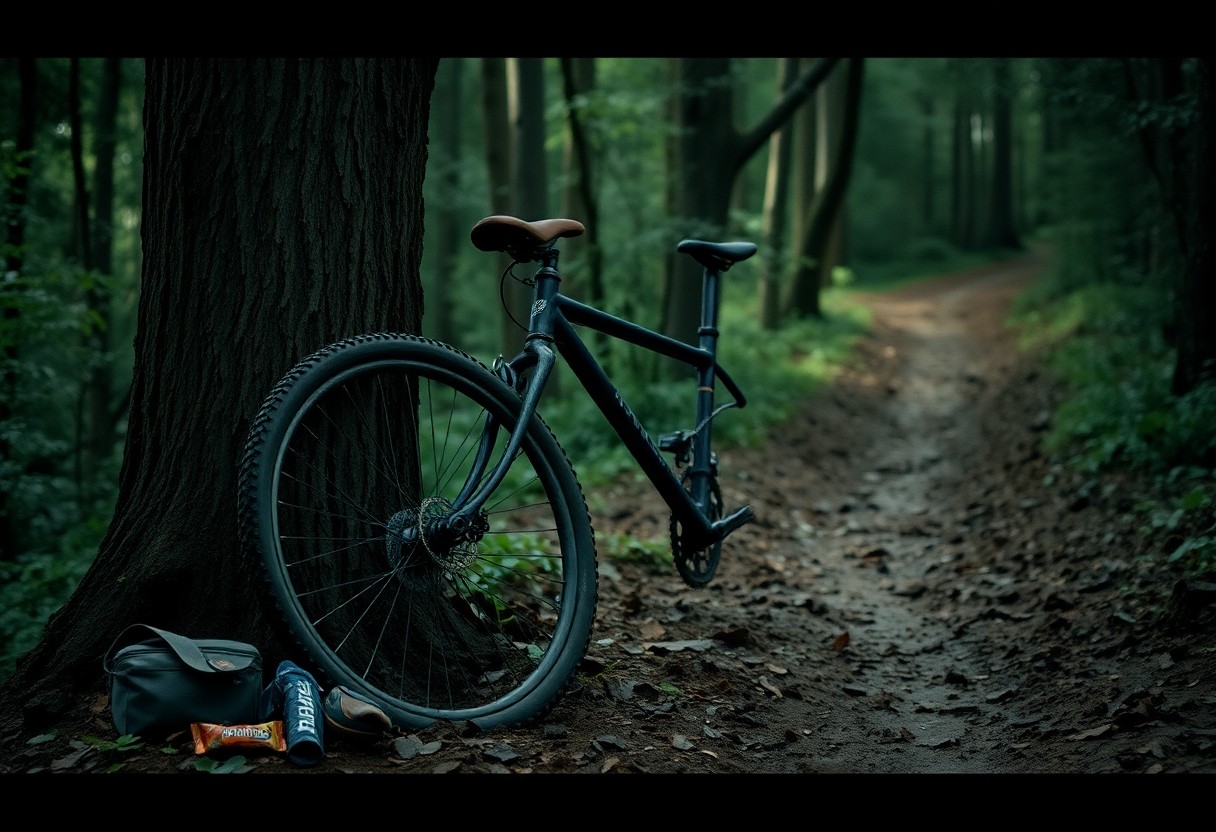Most bikepacking adventures are filled with excitement, but even the best-planned trips can go awry. You may find yourself facing unexpected challenges such as harsh weather conditions, mechanical failures, or poor planning. However, these setbacks offer valuable insights that can enhance your future explorations. By learning from your mistakes, you’ll improve your skills, prepare better, and potentially discover the joys of resilience and adaptability that make bikepacking worthwhile.
The Illusion of Planning: How Overconfidence Led to Setbacks
Your confidence in planning can quickly turn into a liability if not approached with caution. It’s easy to underestimate challenges and overestimate your readiness, believing that a rough outline will suffice for a successful journey. This mindset may lead to complacency, leaving important details overlooked and setting you up for unexpected difficulties when you hit the road.
Misjudging Terrain and Weather Conditions
Ignoring the Importance of Detailed Itineraries
A half-baked itinerary might seem sufficient, but lacking a detailed roadmap can result in costly mistakes. You could miscalculate distances between campsites and arrive at nightfall, or worse, compounded with the wrong gear for the conditions you face. Preparation encompasses more than just packing your gear; it requires knowing your route inside and out.
Ignoring detailed itineraries opens the door to unforeseen challenges. For instance, failing to research the specific trails could mean encountering closed paths or areas requiring permits you didn’t anticipate. Instead of tackling a straightforward ride, you find yourself navigating detours or camping earlier than planned due to unexpected obstacles. Being thorough in planning your itinerary ensures that you can handle surprises and keeps your journey enjoyable rather than fraught with unnecessary difficulties.

Gear Matters: The Cost of Poor Equipment Choices
Your choice of equipment has a direct impact on the success of your bikepacking adventures. Inadequate gear not only compromises your comfort but can also lead to dangerous situations, such as mechanical failures or exposure to the elements. The wrong sleeping bag or an unreliable tyre can turn a scenic ride into a nightmare, making it evident that investing in quality gear pays off in the long run.
The Impact of Inadequate Gear on Performance
Subpar equipment can severely hinder your performance on the road. Imagine struggling with a heavy, uncomfortable backpack while navigating steep inclines. You’ll find your energy levels plummeting as you battle against faulty gear, which can result in injuries or even force an early end to your trip. Choosing inferior items leads to fatigue, frustration, and an unfulfilling experience.
Understanding Which Essentials to Invest In
Focusing on key crucials can make all the difference in your bikepacking experience. Your choice should centre on a robust tent, a lightweight and ergonomic bike, and reliable navigation tools. Investing in quality rain gear, a well-fitted helmet, and durable cycling clothing will protect you from the elements and ensure that your journey is enjoyable and safe. Allocating budget wisely on these crucials often yields better results than skimping on important items.
Your tent should withstand different weather conditions, while a well-fitted bike enhances riding comfort and performance. Additional gear like a multi-tool and spare inner tubes can mean the difference between a minor inconvenience and a major setback. Consider investing in a high-quality sleeping bag rated for the expected temperatures and a reliable water filtration system to ensure hydration on the go. Prioritising these crucials not only affects your comfort but can significantly improve your chances of a successful trip.
Navigational Pitfalls: Lessons from Getting Lost
Straying off-path can quickly transform a bikepacking trip from an adventure to a stressful ordeal. You may underestimate the importance of accurate navigation and soon find yourself staring at a map in confusion. Lost time and energy weigh heavily, and your confidence can plummet when faced with unfamiliar terrain. The reality is that without clear directions, you risk not only fatigue but also potential danger. Use your experiences as a reminder that even minor navigational errors can lead to significant consequences.
The Consequences of Relying Solely on Technology
Dependence on GPS devices and smartphone applications can leave you vulnerable to unexpected failures. Signal loss or battery failure may leave you stranded, forcing you to confront your surroundings without guidance. You might recall that agonising moment of realisation when technology let you down, and how indispensable basic map-reading skills could have been in that instance.
Mastering Traditional Navigation Skills for Future Success
Investing time in learning traditional map and compass navigation can provide you with an crucial skillset for future trips. Understanding topography, landmarks, and the fundamentals of reading a map keep you rooted to your environment rather than relying solely on digital aids. Embracing this knowledge fosters independence, enhances your decision-making skills, and ultimately contributes to a safer, more enjoyable bikepacking experience.
To truly master traditional navigation, start by practicing with local maps before begining on extended trips. Get acquainted with grid references, contour lines, and compass bearings through hands-on exercises. Engage with fellow outdoor enthusiasts, potentially joining navigation workshops to refine your skills. As you cultivate this knowledge, you will find newfound confidence in your ability to navigate diverse terrains, ensuring that your future bikepacking adventures are controlled and pleasurable.
The Social Dynamics of Group Travel: When Disagreements Derail the Journey
The thrill of adventure can sometimes breed unexpected tension within a group. Disagreements over route choices, pace, and even meal preferences can escalate quickly, jeopardising not only the journey but also friendships. You may find yourself caught between differing opinions and expectations, leading to frustration or resentment. Understanding the social dynamics at play is crucial for maintaining harmony, especially when the open trail becomes a source of contention.
Balancing Individual Needs with Group Goals
Each member of your group brings unique preferences and goals to the table. This diversity can enrich the experience but often leads to conflicting priorities. To maintain a sense of unity, strive for a balance where you can address individual needs without compromising the overall objective. Open discussions about everyone’s desires can lay a solid foundation for a successful journey.
Strengthening Communication to Prevent Conflict
Effective communication is the bedrock of any successful group adventure. Articulating your thoughts and feelings clearly can mitigate misunderstandings, allowing for constructive dialogue on critical decisions. Make it a point to actively listen to others; for instance, when tensions rise, validating another’s concerns can transform potential conflict into collaborative problem-solving.
Establishing a culture of open communication fosters trust among group members. This can involve regular check-ins where you each share your thoughts on the trip’s progress or any growing concerns. Use specific examples from current experiences, such as taking moments to discuss the next day’s route or the need for breaks. Setting aside time for these discussions, rather than waiting for issues to arise, greatly reduces the risk of disagreements taking root. Regular, structured communication can ensure that everyone feels heard and respected, allowing your group to navigate challenges effectively and enhance your overall experience.
Reflecting on Recovery: Turn Failures into Future Success
Recovery involves evaluating your experiences, identifying missteps, and using them as a foundation to build future success. Embracing failure can shift your perspective from disappointment to a learning opportunity, equipping you with valuable insights that enhance your preparedness for the next adventure. Cultivating a growth mindset empowers you to transform setbacks into stepping stones, ensuring that your next bikepacking journey is more informed, resilient, and enjoyable.
Strategies for Learning from Mistakes
Documenting your experiences immediately after the trip allows you to capture important details before they fade. Create a list of what went wrong, categorising issues such as equipment failures, navigational errors, or social conflicts. By analysing these factors, you can develop targeted strategies to avoid similar pitfalls in the future, ensuring a more successful outcome on your next excursion.
Building Resilience in Outdoor Adventures
Resilience isn’t just about bouncing back; it’s about adapting and evolving through challenges. Engaging with nature exposes you to unpredictable elements that can test your limits, demanding creativity and tenacity. For instance, long-distance cyclists often face sudden weather changes, requiring them to adjust their plans and mindset. Developing a strong sense of resilience enhances your overall outdoor experience and fosters personal growth, making you better equipped to handle future obstacles.
The process of building resilience can also be honed by reflecting on past experiences. Consider how you responded to unexpected challenges, such as feeling fatigued halfway through a ride or facing a mechanical failure. Recognising which coping strategies worked, and which didn’t, allows you to fine-tune your approach over time. Engaging in preparatory training—both physically and mentally—prior to outings can also fortify your resilience, preparing you for the rigours of adventure. Ultimately, every challenging experience serves as a lesson, shaping you into a more capable and confident adventurer.
Final Words
With these considerations, you can gain valuable insights from a bikepacking trip that didn’t go as planned. Embrace the lessons learned about preparation, route planning, and personal endurance, as these experiences can significantly enhance your future adventures. Reflecting on your missteps will strengthen your problem-solving skills and encourage a more resilient mindset on the trail. By turning setbacks into stepping stones, you’ll be better equipped to tackle challenges, ensuring that your next bikepacking journey is not just an escape but a resounding success.
